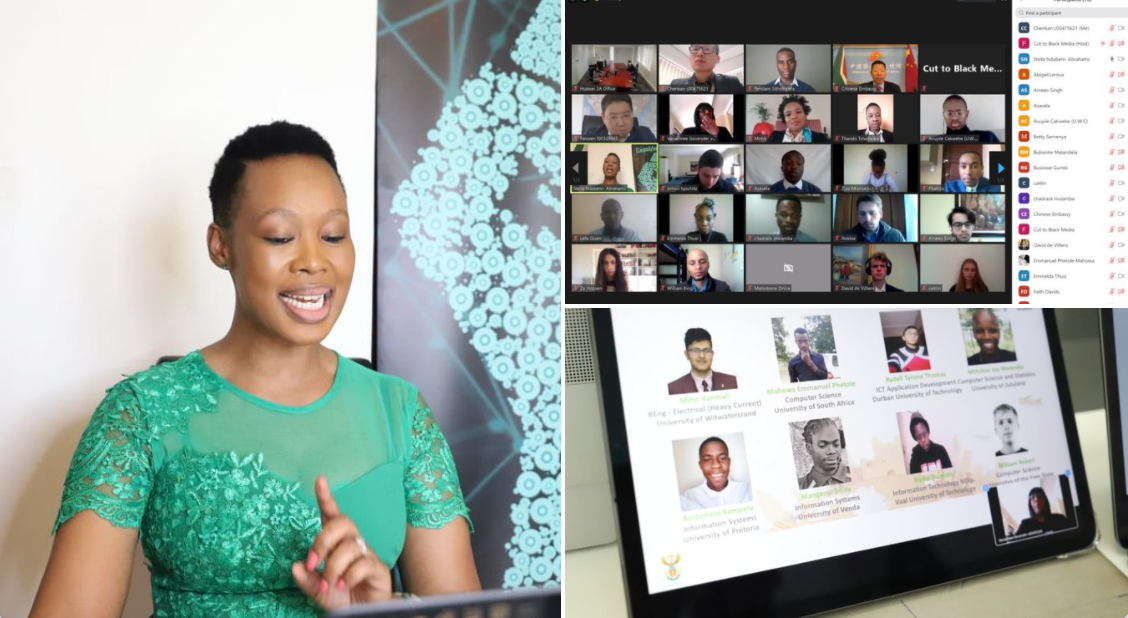Africa News
Huawei offers free AI training to South African students
Huawei South Africa has added online training in Artificial Intelligence (AI) to a portfolio of free training it offers to South African ICT students.
Speaking at the online opening ceremony for the 2020 Seeds for the Future training programme, Huawei CEO Spawn Fan said this was part of its commitment to training in 4IR technologies such as 5G and cloud computing, which it kicked off last year.
Seeds for the Future is Huawei’s global flagship CSR programme, designed to develop skilled, local ICT talent and bridge communication between countries and cultures. In South Africa the programme is run in partnership with the Department of Communications and Digital Technologies. Every year, a group of outstanding students are given the chance to study new technologies and experience Chinese culture on a study trip to Beijing and Shenzhen.
This year’s Seeds for the Future is going online, from 24 August, due to the global Covid 19 pandemic. The 50 course participants – selected from hundreds of applicants – will follow live-streamed lectures and online course material. The course includes modules on 5G broadband, cloud computing and the Internet of Things, as well as virtual tours of the Huawei campus in Dongguan, China; interactions with other course participants from around the world and access to Chinese cultural resources.
At the launch, Fan announced that Huawei had also begun its first free online AI training programme for university and TVET college students in Gauteng and Limpopo. A total of 122 students are attending, and by the end of the course they will be able to design, develop, and innovate AI products and solutions.
“To function in the emerging Fourth Industrial Revolution, ICT skills will be indispensable – for organisations, for individuals, and for society,” said Fan.
The launch was attended by Minster of Communications and Digital Technologies Stella Ndabeni-Abrahams, who endorsed Huawei’s investment in youth ICT development and highlighted the importance of tech skills in the new economy.
She said the government was committed to working with progressive partners that invest in the people of South Africa so they too can participate effectively and meaningfully in the digital future.
Fan said that Huawei was conscious of the need to enhance South Africa’s ICT ecosystem on every front, and that Seeds for the Future programme was part of its commitment to doing this.
“We believe it is critical to unleash the potential of South Africa’s young people – especially women – so they can become agents of their own digital empowerment,” he said. “This Women’s Month, it is also important to continue bridging the gender gap in the ICT sector. As we march into the fourth industrial revolution, we must use opportunities like these to empower women in ICT, for the benefit of all of society.”
Li Nan, Charge d’Affairs of the Chinese embassy said that initiatives such as Seeds for the Future encouraged localisation of talent in African countries, and were a great step towards fulfilling aspirations of national development.
“A sustainable supply of ICT professionals is an essential pillar of digital transformation,” he said. “China supports South Africa’s efforts to explore its national development with the digital economy as the core.”
Fan said that the emerging ICT ecosystem was globally integrated, as evidenced by the worldwide move to 5G technology. To address this, Huawei had been running free 5G training courses for ICT students over the past year, which is progressing well, despite the lockdown.
Share
- Click to share on Twitter (Opens in new window)
- Click to share on Facebook (Opens in new window)
- Click to share on LinkedIn (Opens in new window)
- Click to email a link to a friend (Opens in new window)
- Click to share on Reddit (Opens in new window)
- Click to share on WhatsApp (Opens in new window)
- Click to share on Pinterest (Opens in new window)
| Thank you for Signing Up |

















